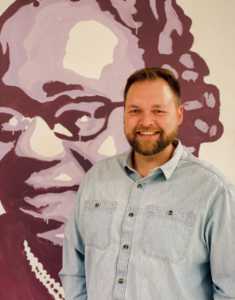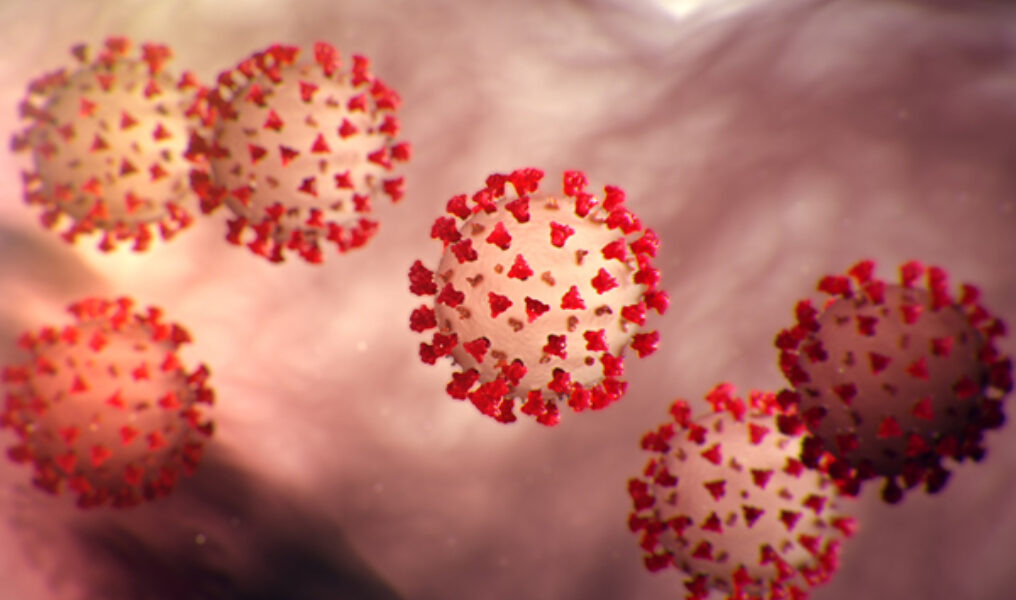At the best of times, LGBTQ youth often find themselves in precarious housing situations, making up roughly 40 percent of the homeless population of those aged 12 to 17 in the U.S. According to youth.gov — a working group composed of 21 federal agencies working to provide healthy outcomes for the nation's youth — four key reasons are to blame: family rejection resulting from sexual orientation or gender identity; physical, emotional, or sexual abuse; aging out of the foster care system; and financial and emotional neglect. Now, as the novel coronavirus continues to make an impact on the U.S., agencies like the Ruth Ellis Center in Highland Park that provide services to youth who are both at-risk and experiencing homelessness have found themselves in an unprecedented situation: more necessary than ever, but limited to the amount of in-person care available.
Unlike many nonprofits, however, REC has been able to pool its resources and even undergo an expansion during the age of COVID-19. Between The Lines caught up with both longtime staff and newer hires at REC to get a sense of how the organization is tackling its day-to-day requirements during a worldwide pandemic.
COVID-19's Overall Mental Health Impact
Dr. Kofi Adoma was a founding member of the Center and began serving as REC's lead therapist in the behavioral health clinic this year. While she hasn't been at REC in a full-time capacity for long, she said that there's been a palpable difference in the stress levels of youth since the pandemic started. Unfortunately, it seems to be growing in the areas of anxiety, depression and trauma.
"All of this is stressful, but things have been stressful for these youth for longer than COVID. It just created more of an awareness, perhaps, of the struggle of LGBT youth who are at high risk or are experiencing homelessness," Adoma said. "… The number one challenges, in my opinion, that faces a lot of these young people includes: anxiety, panic attacks, depression, low self-esteem, suicidal thoughts, self-harming behaviors, negative thinking, and what us therapists call self-defeating thoughts or catastrophic kinds of thoughts."

Dr. Kofi Adoma is
founding member of the Center and began serving as REC's lead therapist in the behavioral health clinic this year. Courtesy photo.
Increased substance abuse, mood regulation and problems with family and interpersonal communication have also been issues. Notably, Adoma said that she's been placing "more emphasis" on the family preservation program, which works to strengthen bonds between REC's clients and their relatives during this time because of the increased proximity to potentially unsupportive family members. She added that a proactive, psychoeducation-focused approach has been key to educating both youth and families on why certain emotions might be heightened during this time.
"We're here to help provide support for how they can cope with their emotional needs during a crisis situation. Our youth … are in constant crisis on a daily basis," Adoma said. "It could be very frightening and triggering to not be in control and this is a situation in which all of us may be feeling very vulnerable. And so, I try to help support them so that they can figure out direction and guidance around that."
Adoma gave an example of three tools that could be a help to anyone during this time: self-care, creating a routine and rethinking vulnerability as a strength, not a weakness.
Providing Care at a Distance
Because of social distancing requirements, one of the first elements in the REC staff's toolbelt has been telehealth. It has been imperative to ensure that those receiving care can maintain their contact with REC employees without exposing themselves to COVID-19 infection.
"Largely, we've moved our case management services to a telehealth model — providing services via video call, telephone, text messaging and all of those sorts of things. And it really was a necessary transition," Adoma said. "I know a lot of organizations that provide these sorts of services that made the same sort of transitions during COVID."
Nazarina Mwakasege Minaya is a senior development associate at REC. She highlighted social media as a great tool to reach youth and to fill them in about all of the Center's offerings.
"We have channels that are specifically for youth and they know how to utilize those avenues to utilize any information they need to get connected. … I also have the great fortune of answering some of the emails that come from our young people and the ways that they find us are just terrific, 'I heard about you through a friend, through another friend, cousin,'" Minaya said.

Nazarina Mwakasege Minaya is a senior development associate at REC. Courtesy photo.
Currently, REC has general information pages on platforms like Facebook, but also ones aimed specifically for youth to use.
"We also have another one for our supporters and donors and people who are just trying to learn more. We have a Twitter account, which is sort of a blend of the two populations, but they know if they need some quick info — a phone number, a flier about an event that's going on, it's often posted there. And to get really in touch with the young people, we also have an Instagram account," she said with a laugh. "It is run by my counterpart I'Sha [Schultz-Spradlin], and she's amazing at getting info out to our young people but also working in a way to ensure that they know how the community is supporting them."
Minaya and Schultz-Spradlin have also collaborated to reach clients and community members via the brand-new "Voices of REC" podcast that highlights REC's work and priorities.
Safety Nets and In-Person Care
However, as effective as technology-focused services can be, they're not always ideal. In some cases, Community-Based Therapist Mitch Paradise said that telehealth can feel like a double-edged sword.
"It creates increased access for some folks, but it in some ways can be a real hindrance," they said, noting that many youths attempting to access REC have unreliable internet connections and access to devices like phones.

Mitch Paradise is a community-based therapist at REC. Courtesy photo.
Sometimes, Paradise said, there is no replacement for in-person care.
"I recently met with a family for the first time in their home, which was a unique experience given COVID, and it was really interesting to be welcomed into their home and given all these safety precautions. But it felt really good to be able to still offer help while making sure that everyone is safe and healthy."
Fellow Behavioral Health Specialist Joyya Pettus agrees. In some ways, she said, COVID-19 has helped to shed light on why safety nets like REC are important.
"I think because COVID has brought it to light, and because so many other people's housing dynamics were changed due to COVID, there are some people that maybe were higher- or lower-income and have lost jobs completely. Even though they had unemployment [benefits], there were still so many issues with it, like I know folks that personally didn't get unemployment for six months," she said. "Some were able to sustain themselves, but some became homeless, so they have the empathy now that this could happen to anyone — not just because you're a certain person or gender. This can happen to anyone."

REC Behavioral Health Specialist Joyya Pettus. Courtesy photo.
In fact, the need has been so dire, that Pettus' caseload has more than doubled from its normal level of roughly 10-15 to 32.
"Some don't need as much as others, but those who need it? Their mental health has gotten worse. Relationships and domestic violence has gotten worse during COVID time because they're so isolated and it's just a different world right now," she said. "I'm trying to encourage our youth right now that even though it is, we still need to take care of ourselves."
That's why, in addition to overall mental health efforts, aid like food resource distribution has become a large part of what makes the center tick these days. While public donations have been curbed to prevent the potential spread of COVID-19, youth are still able to access food resources by calling the center to schedule a pick-up time.
"COVID-19's exposed that a lot of folks are on a razor's edge in terms of resources and their access to a potential crisis if something suddenly were to happen if somebody loses a job or their income suddenly changes. … So, I view a lot of the services that we provide as trying to add to that buffer," said Licensed Social Worker Luke Hassevoort. "Whether it's the food pantry through the drop-in center, using emergency funds, we've had an emergency grant during COVID where we were able to turn around and distribute gift cards to people for emergency needs."

Luke Hassevoort, a licensed social worker at REC and the person spearheading the Center's rapid re-housing project. Courtesy photo.
When asked why he does what he does, Hassevoort summed it up well.
"In this specific area that I work in, I do view this as a human right, that people have a right to housing and that everybody in our community should have housing," he said. "We shouldn't give up until people have a safe place to sleep at night."
Learn more about Ruth Ellis Center online at ruthelliscenter.org.










